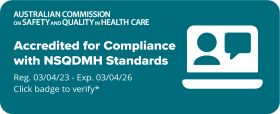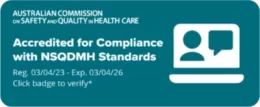Accessibility Tools
- Content scaling 100%
- Font size 100%
- Line height 100%
- Letter spacing 100%
The SANE Blog

COVID weight gain jokes can harm people with eating disorders
In SANE's COVID mental health series, Sophie talks about the impact of 'quarantine-15' jokes. She warns they can harm people living with eating disorders and offers her advice.
If you have been spending more time on social media throughout the COVID lockdown, you definitely aren’t alone. Social media platforms have been a well-established part of western life for over a decade and the variety of avenues grows by the year.
Some have been problematic and potentially even harmful. In this instance, I’m talking about the memes and jokes that emerged about weight gain in quarantine.You may have seen them too – jokes about signing up for weight loss shows, statements about gaining the “Quarantine 15” and even before and after images of a photoshopped barbie doll.
At first glance, these jokes and images may seem clever or laughable, but for people living with eating disorders, and for people living in larger bodies, such jokes can be harmful.
In these unprecedented times, many of us have been relying on social media like never before to connect with those we love, to share our struggles and to have a laugh. However, some jokes have not been so funny.
As a proud survivor of anorexia, what I see in these jokes is a potential trigger to exacerbate illness-driven anxieties and struggles with distorted body image. However unintentionally, they take a serious component of psychiatric illnesses and trivialise it.
Just as disturbing has been the recent increase in TikTok videos featuring extremely unsafe and rapid weight loss tips. The lack of surveillance and sharing of this material is a problem that existed long before the spread of COVID but has escalated in recent circumstances, with The Butterfly Foundation alerted by the public.
Many people who prioritise an active lifestyle may have experienced anxiety with the closure of gyms and group sport, faced with adapting exercise routines. Thoughts about the maintenance of health, fitness and weight have crossed minds in the general public. But this level of concern is not what the fear of weight gain looks like in the grips of an eating disorder.
At my most unwell, I couldn’t eat without feeling I needed to burn off all the energy I brought into my body. At times, I was genuinely concerned about the consequences of drinking water. Instead of spending my adolescence with friends at school, I was being fed through a tube in my nose and on supervised bed rest.
Eating disorders hijack sufferers’ lives, ridding them of joy, opportunity and connection as identity beyond illness disintegrates. They compromise every aspect of human life, from the emotional to the social, occupational, spiritual and physical. Eating disorders end lives long before the body gives out, but eventually, and far too often, that happens too.
The COVID pandemic has affected millions of lives in a myriad of ways, from health and employment to housing security, education and the most basic of human contact. The uncertainty, social isolation and forced disruption to life can pose enormous challenges to us all. But routine, structure and regular in-person support are pillars of eating disorder recovery, stripped away by lockdown measures.
Many steps towards wellness rely on social experience, from eating in public to spending more time with friends. By challenging my fears about food and re-engaging with others, I slowly became more confident with eating and began to trust people, not my disorder, to support me.
These avenues are just some that were eradicated by shutdown, while isolation, which is highly conducive to eating disorders, was imposed by law. With the scope of recovery options compromised, the pull towards eating disorder symptoms can be overwhelming.
These illnesses hold a false promise of control where it’s otherwise lacking, offering food, exercise, body shape and weight to self-dictate when all else has fallen away. These exceptionally difficult times can challenge people in even the most prolonged and stable recovery. But as a friend once wisely said to me, “if you give it your pinkie finger, it takes your whole arm”.
As someone maintaining my own recovery, I’d like to offer some words to any and all who may be struggling at this time:
- Take recovery one day, one step or even one minute at a time.
- An increase in eating disordered thoughts and anxieties are normal under these circumstances, even if you’ve been in recovery for years.
- If you slip, please know this is okay. It does not un-do the work you have already done. You are worthy of self-forgiveness and compassion. Endeavour to do the next right thing for your mind and body, however small it may seem.
- If you feel the need for extra professional support, please reach out to your treatment providers, even if face-to-face contact isn’t yet an option.
- Do not feel guilty for your suffering or minimise what you’re going through. I personally found it challenging to disclose my struggles with my psychiatrist for fear of burdening or overwhelming him. He said to me, “Can everyone run 100 metres in ten seconds?” Of course, the people who can are the people who are trained to. He used the metaphor to remind me that the training of mental health professionals helps them process the emotions and thoughts of their clients. I summarised this tongue-in-cheek by saying, “So you’re the Usain Bolt of psychiatry?” Funny – but it helped.
- Be kind to yourself – always- but especially at this time.
If someone you love is struggling, one of the most powerful offerings you can provide is an open, nonjudgmental and validating ear. These times pose enormous challenges to recovery from all complex mental illness. Acknowledge your loved one’s bravery and hard work in continuing their journey forward.
Australia is emerging from lockdown, with a plan to lead us back into our lives. For many of us, the transition out of quarantine will be just as challenging as the transition in. Fairly new routines will be broken right as many people have become comfortable in them. Face-to-face contact with a treatment team, in-person socialising and reintegrating into the world, while positive, may also be overwhelming for people living with complex mental illness.
If you (or someone you know) needs support – SANE's free counselling support is open from Monday–Friday, 10am–8pm AEST/AEDT. Our team of counsellors are available by phone, web chat and email, so you can comfortably communicate in the way that feels best for you.
Visit SANE's counselling services now.
If you'd like to chat with other people who understand what you're going through, the SANE Forums are safe, anonymous, and online 24/7. There's one Forum for Lived Experience, and another for family, friends or carers.
Resources
By accepting you will be accessing a service provided by a third-party external to https://www.sane.org/










